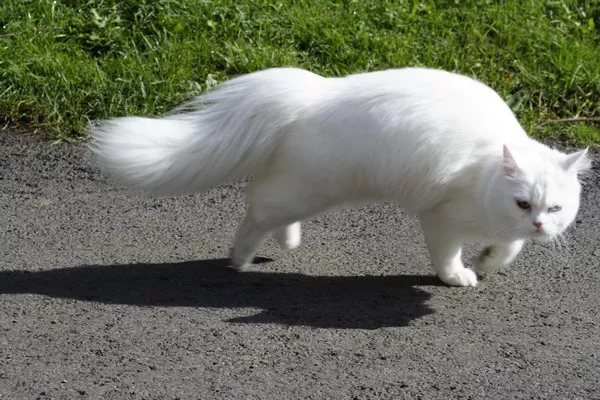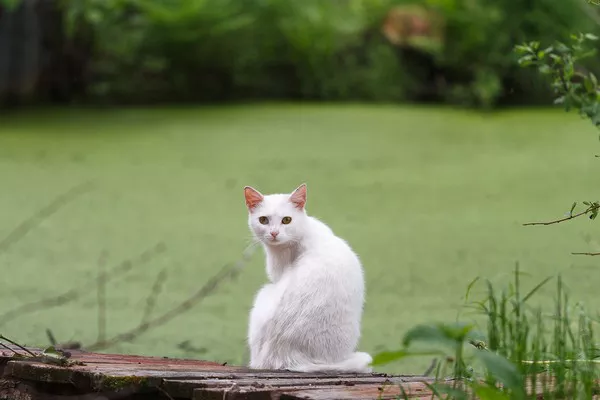Proper nutrition is essential for maintaining the health and well-being of cats. Feeding cats a balanced and nutritious diet can help prevent a variety of health problems, including obesity, diabetes, and dental disease. In this article, we will explore some of the best foods for healthy cats and discuss the nutritional requirements that cats need to thrive.
High-Quality Protein
Cats require a diet that is high in protein to meet their unique nutritional needs.
Protein provides essential amino acids that cats need to maintain muscle mass, support their immune system, and repair tissues.
High-quality protein sources for cats include meat, poultry, and fish.
When selecting cat food, it’s important to look for products that list a high-quality protein source as the first ingredient.
Additionally, it’s important to ensure that the protein source is easily digestible for cats.
Essential Fatty Acids
Essential fatty acids, such as omega-3 and omega-6 fatty acids, are important for maintaining healthy skin and coat in cats.
These fatty acids also play a role in supporting the immune system and reducing inflammation.
Fish oil and flaxseed oil are good sources of essential fatty acids and can be added to a cat’s diet as a supplement.
However, it’s important to consult with a veterinarian before adding any supplements to a cat’s diet.
Carbohydrates
While cats are obligate carnivores and do not require carbohydrates in their diet, some carbohydrates can be beneficial for providing energy and supporting digestive health.
Look for cat foods that contain complex carbohydrates, such as brown rice or sweet potatoes, rather than simple carbohydrates like corn or wheat.
Additionally, it’s important to ensure that the carbohydrate content of the cat food is not too high, as this can lead to obesity and other health problems.
Vitamins and Minerals
Vitamins and minerals are essential for maintaining overall health and preventing nutrient deficiencies in cats.
Look for cat foods that contain a variety of vitamins and minerals, including vitamin A, vitamin E, taurine, and calcium.
These nutrients can help support healthy vision, immune function, and bone health in cats.
However, it’s important to avoid over-supplementing with vitamins and minerals, as this can be harmful to cats.
Moisture
Cats require adequate moisture in their diet to support healthy kidney function and prevent urinary tract problems.
Wet cat food is a good source of moisture and can help keep cats hydrated.
Additionally, providing fresh water for cats to drink is essential for maintaining their overall health.
It’s important to ensure that cats have access to clean water at all times.
Avoiding Harmful Ingredients
Some ingredients commonly found in cat food can be harmful to cats.
For example, ingredients like onion, garlic, and chocolate can be toxic to cats and should be avoided.
Additionally, some cat foods may contain fillers or artificial preservatives that can be harmful to cats. Look for cat foods that are made with high-quality, natural ingredients and do not contain harmful additives.
It’s important to read the ingredient label carefully and avoid any products that contain ingredients that are potentially harmful to cats
Homemade Cat Food
While commercial cat food can provide a convenient and balanced diet for cats, some pet owners prefer to make their own cat food at home.
Homemade cat food can provide a more personalized diet for cats and can be especially beneficial for cats with specific dietary needs or health conditions.
However, it’s important to ensure that homemade cat food is nutritionally balanced and meets all of a cat’s nutritional requirements.
Working with a veterinarian or veterinary nutritionist to develop a homemade cat food recipe that meets your cat’s needs is recommended.
Raw Food Diets for Cats
Raw food diets for cats have become increasingly popular in recent years.
Proponents of raw food diets argue that they provide a more natural and nutrient-dense diet for cats.
However, there are some potential risks associated with feeding cats a raw food diet, including the risk of bacterial contamination and nutrient imbalances.
It’s important to consult with a veterinarian before feeding your cat a raw food diet and to ensure that the diet is nutritionally balanced and safe for your cat.
Prescription Diets for Cats
Prescription diets for cats are specially formulated to meet the unique nutritional needs of cats with specific health conditions, such as kidney disease, diabetes, or gastrointestinal issues.
These diets are available by prescription from a veterinarian and are designed to help manage the underlying health condition while providing a nutritionally balanced diet.
It’s important to work closely with a veterinarian to ensure that your cat’s prescription diet is meeting their nutritional needs and helping to manage their health condition.
Treats for Cats
While treats can be a fun way to reward cats and provide them with extra nutrition, it’s important to choose treats that are nutritionally balanced and not high in calories.
Many commercial cat treats are high in calories and can contribute to weight gain and other health problems.
Look for treats that are made with high-quality ingredients and are low in calories.
Additionally, it’s important to limit the amount of treats that you give your cat to prevent overfeeding and obesity.
Feeding Multiple Cats
Feeding multiple cats in the same household can present some unique challenges.
Cats have different nutritional needs based on their age, weight, and activity level, and it can be difficult to ensure that each cat is getting the appropriate amount of food.
Additionally, some cats may be more dominant at mealtime and may try to eat more than their fair share of food.
It’s important to provide each cat with their own food bowl and to monitor their food intake to ensure that they are all getting the appropriate amount of food.
Feeding cats in separate rooms or at different times can also help prevent conflicts over food.
Conclusion
Feeding cats a balanced and nutritious diet is essential for maintaining their health and well-being. High-quality protein, essential fatty acids, complex carbohydrates, vitamins and minerals, moisture, and avoiding harmful ingredients are all important considerations when choosing a cat food. It’s important to work with a veterinarian to develop a dietary plan that meets the individual nutritional needs of your cat. Additionally, providing fresh water and regular exercise can help keep cats healthy and happy.
Related Topics



























